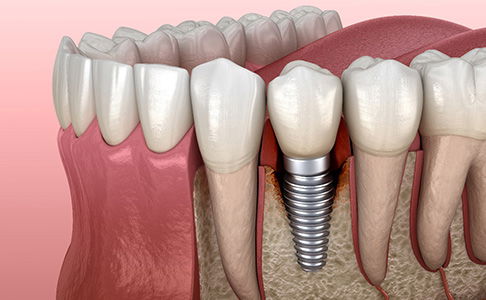Dental Implants Transforming Smiles with Advanced Tech
Introduction to Dental Implants
Dental implants have revolutionized the field of dentistry, offering a solution for those with missing teeth that looks and feels natural. This modern technology integrates seamlessly with the jawbone, providing a sturdy base for artificial teeth. With advancements in technology, dental implants are now more effective and accessible than ever, transforming smiles and enhancing dental health.
What Are Dental Implants?
Dental Implant Practice in Dubai are artificial tooth roots made of titanium or titanium alloy that are surgically placed into the jawbone. They serve as a foundation for mounting replacement teeth, such as crowns, bridges, or dentures. Unlike traditional dental solutions, which might require adjustments to neighboring teeth, implants are a standalone option, preserving the integrity of the surrounding natural teeth.

Benefits of Dental Implants
**1. Natural Appearance and Function: One of the primary advantages of dental implants is their ability to mimic the look and function of natural teeth. The prosthetic teeth attached to implants are custom-made to match the color and shape of your existing teeth, ensuring a seamless integration into your smile.
Durability and Longevity
: Dental implants are known for their durability. Made from biocompatible materials, they are designed to withstand the rigors of daily use, including chewing and biting. With proper care, dental implants can last a lifetime, making them a long-term investment in oral health..
Bone Preservation:
When a tooth is lost, the underlying bone can begin to deteriorate due to lack of stimulation. Dental implants help preserve bone structure by providing the necessary stimulation to the jawbone, preventing bone loss and maintaining facial structure..
Enhanced Comfort:
Traditional dentures and bridges can sometimes cause discomfort or require adjustment. Dental implants eliminate these issues by providing a stable and secure foundation for replacement teeth. This stability allows for comfortable eating and speaking without the fear of shifting or slipping.
The Dental Implant Procedure
Initial Consultation
: The process begins with a thorough examination and consultation with a dental professional. This includes taking X-rays or CT scans to assess the bone structure and determine the best placement for the implants.**2. Implant Placement:
During a minor surgical procedure, the dental implant is inserted into the jawbone. This is typically done under local anesthesia, ensuring minimal discomfort. Over the following months, the implant integrates with the bone through a process called osseointegration.
. Abutment Placement:
Once the implant has fused with the bone, an abutment is attached. The abutment acts as a connector between the implant and the artificial tooth or teeth..
Crown Placement:
Finally, a custom-made crown, bridge, or denture is attached to the abutment. This restoration is designed to match your natural teeth, providing a complete and natural-looking smile.
Advanced Technology in Dental Implants
Recent advancements in dental implant technology have further enhanced the procedure's success and efficiency. Some of these innovations include:
3D Imaging and Computer-Guided Surgery:
Modern technology allows for precise planning and placement of dental implants. 3D imaging provides detailed views of the jawbone, while computer-guided surgery helps in accurate implant placement, reducing the risk of complications and improving outcomes.
Mini Implants:
For patients with limited bone structure, mini implants offer a viable alternative. These smaller implants require less bone density and can be used in narrower areas where traditional implants might not fit.
Immediate Loading Implants:
Traditionally, there was a waiting period between implant placement and the attachment of the replacement teeth. With immediate loading implants, the process can be expedited, allowing for a quicker restoration of function and aesthetics.
Maintaining Dental Implants
Proper care and maintenance are crucial for the longevity of dental implants. Here are some tips to ensure your implants remain in excellent condition:
Regular Oral Hygiene:
Brush and floss your teeth regularly to prevent plaque buildup around the implants. Use a soft-bristled toothbrush and non-abrasive toothpaste to avoid damaging the implant surface..
Routine Dental Check-Ups:
Regular visits to your dentist are essential for monitoring the health of your implants. Professional cleanings and examinations help identify any potential issues early on.
Healthy Lifestyle Choices:
Maintain a balanced diet and avoid habits that can affect oral health, such as smoking. A healthy lifestyle supports the overall well-being of your implants and surrounding tissues.
Conclusion
Dental implants represent a significant advancement in modern dentistry, offering a durable, natural-looking, and comfortable solution for missing teeth. With continuous improvements in technology and techniques, implants provide patients with enhanced oral health and a transformed smile. If you're considering dental implants, consult with a dental professional to explore how this advanced technology can benefit you.Embrace the potential of dental implants and discover how they can enhance your quality of life, offering a smile that not only looks great but functions seamlessly.
